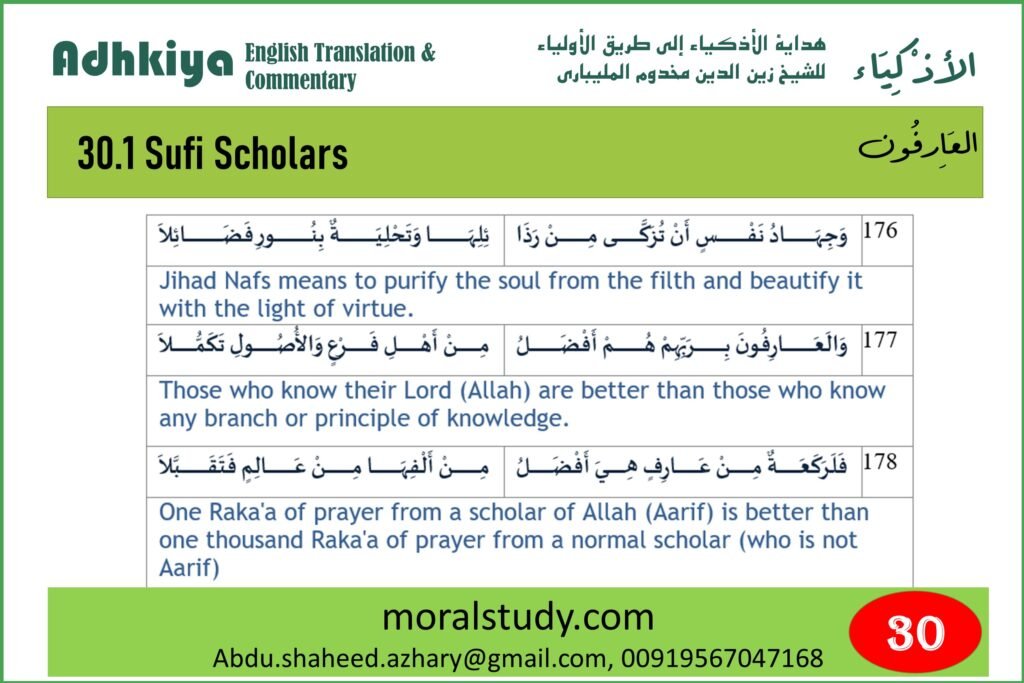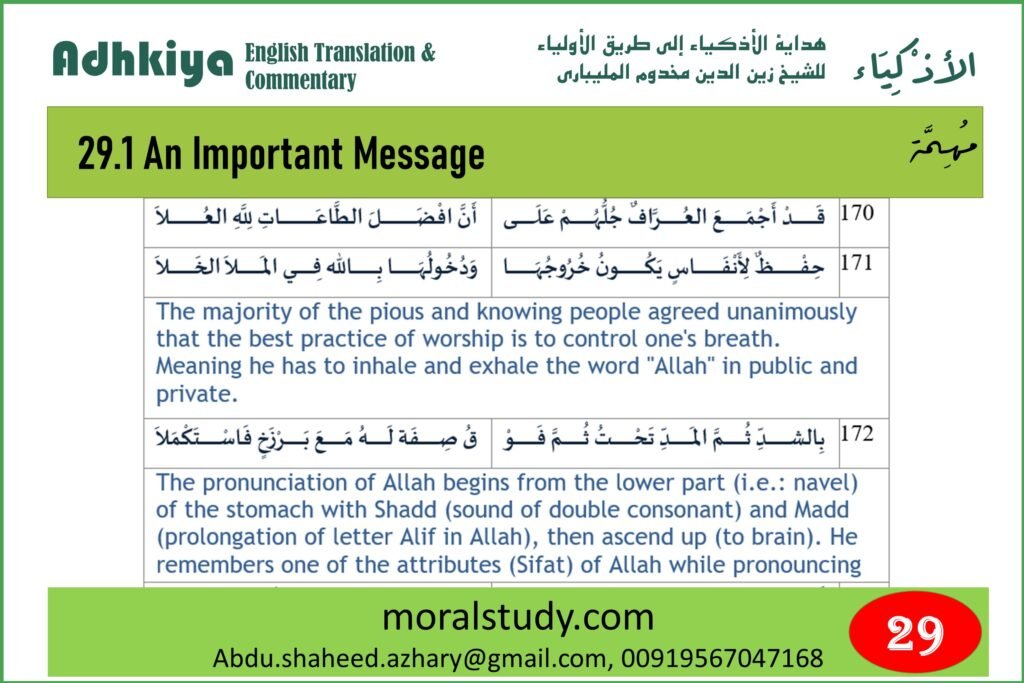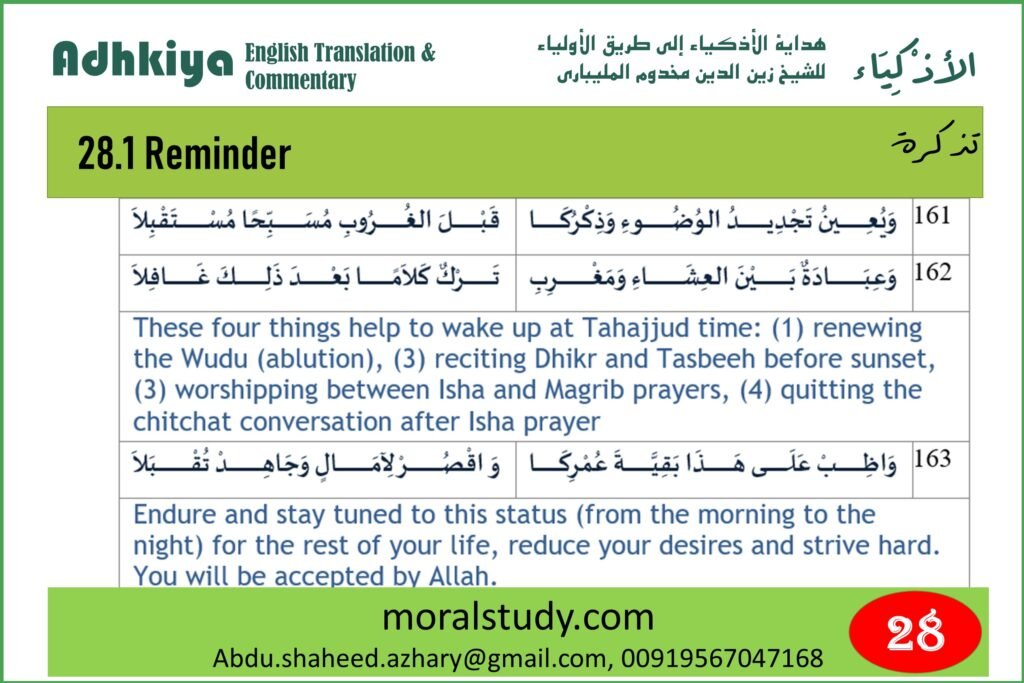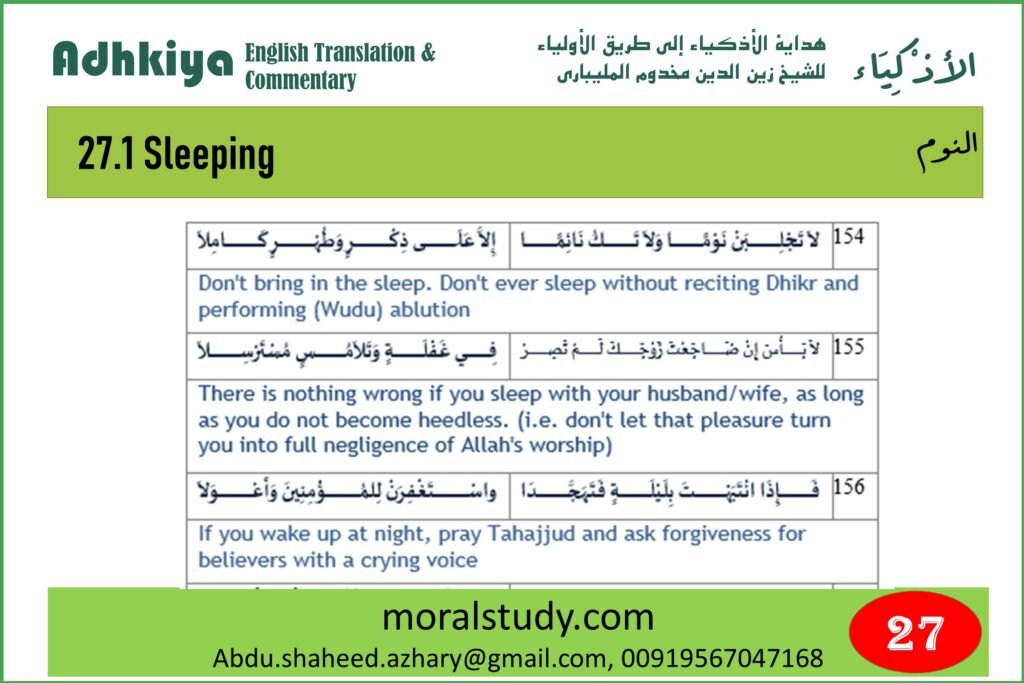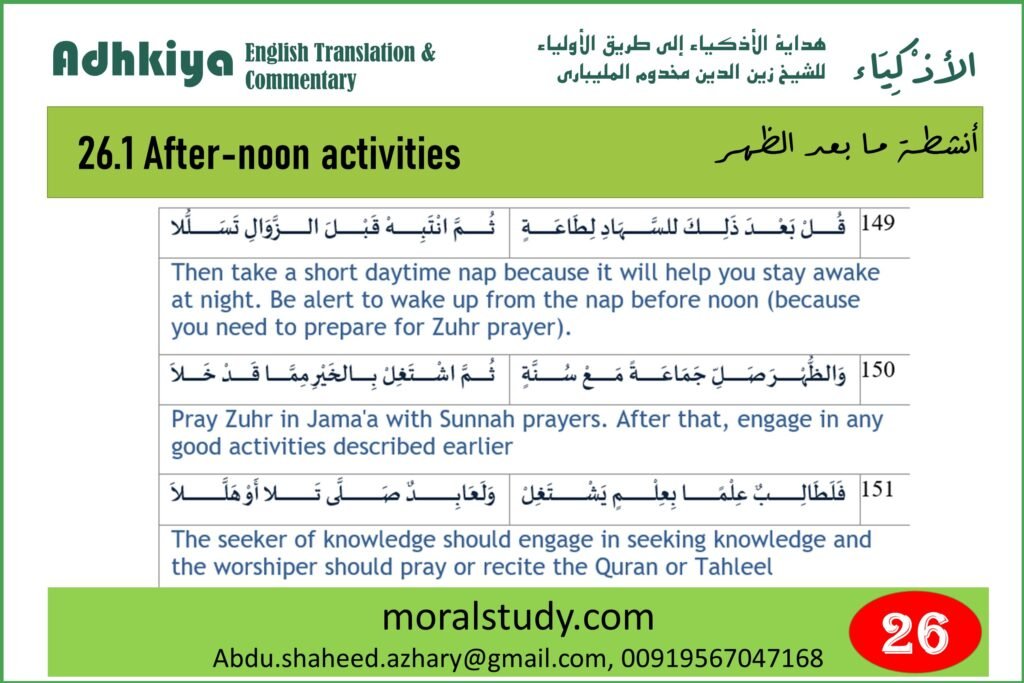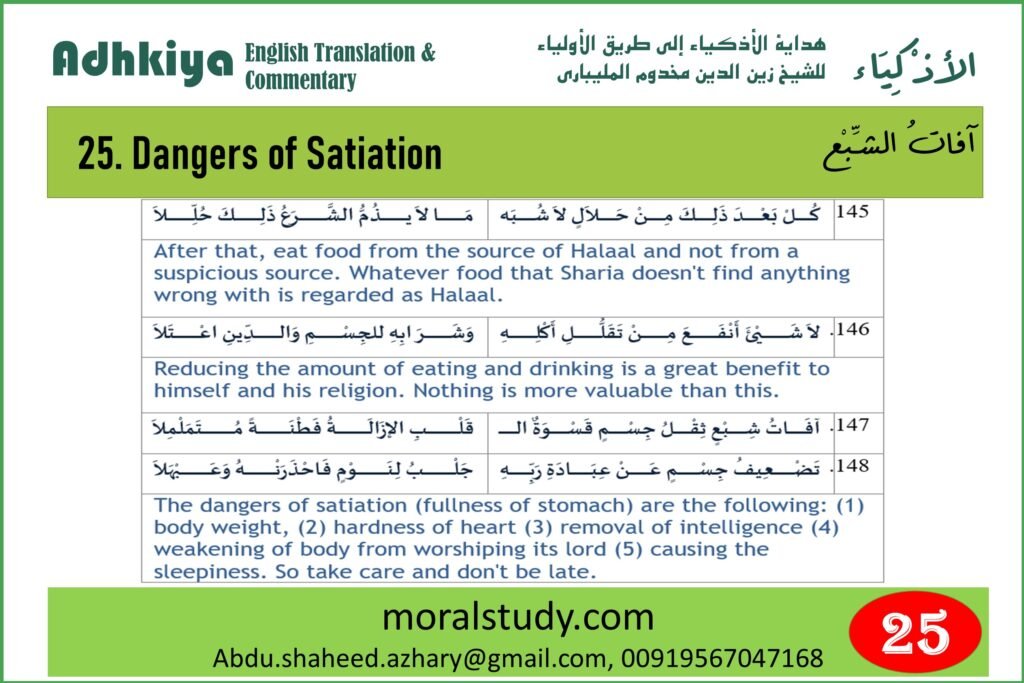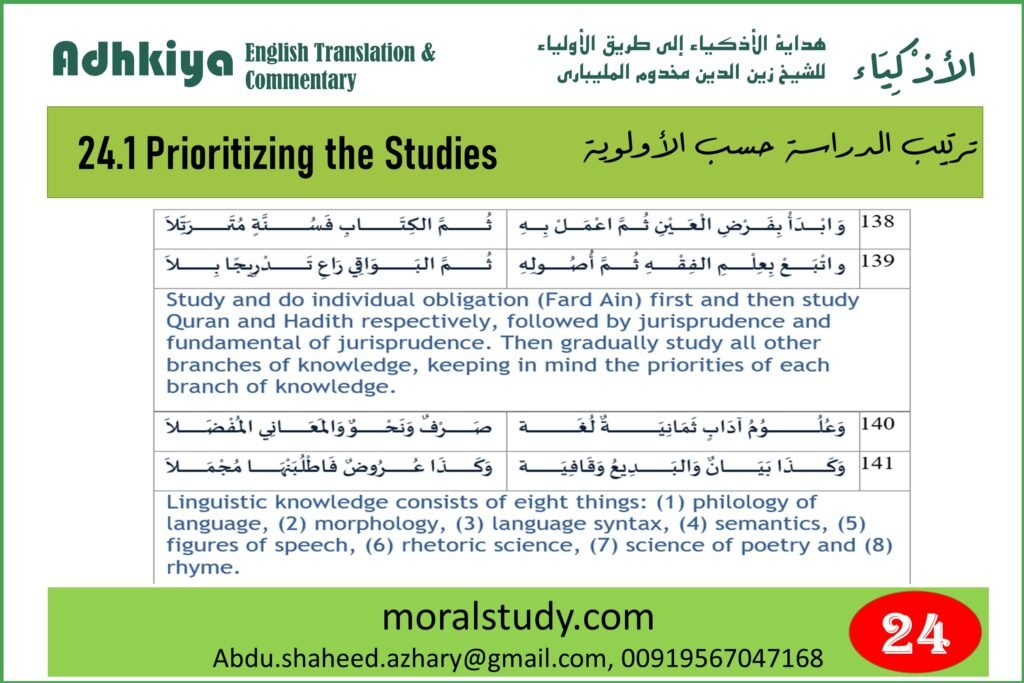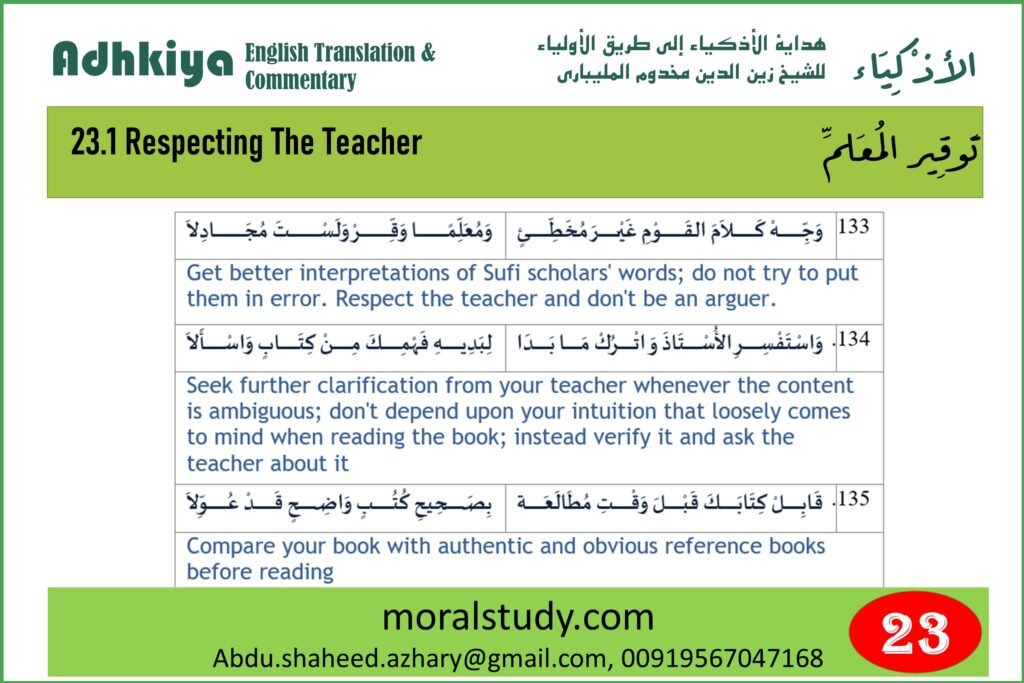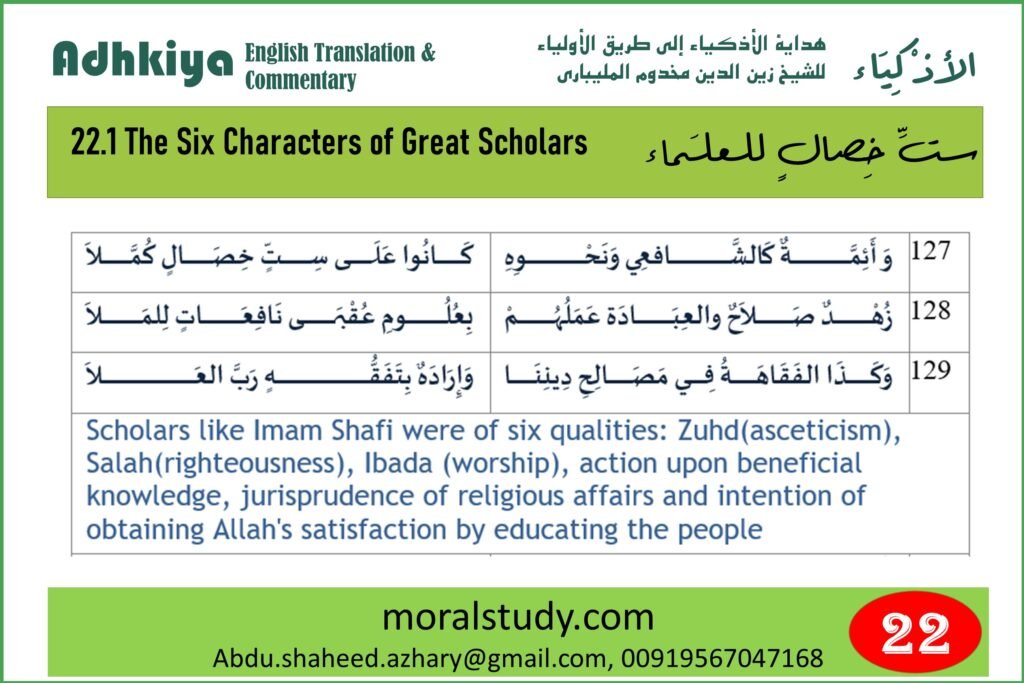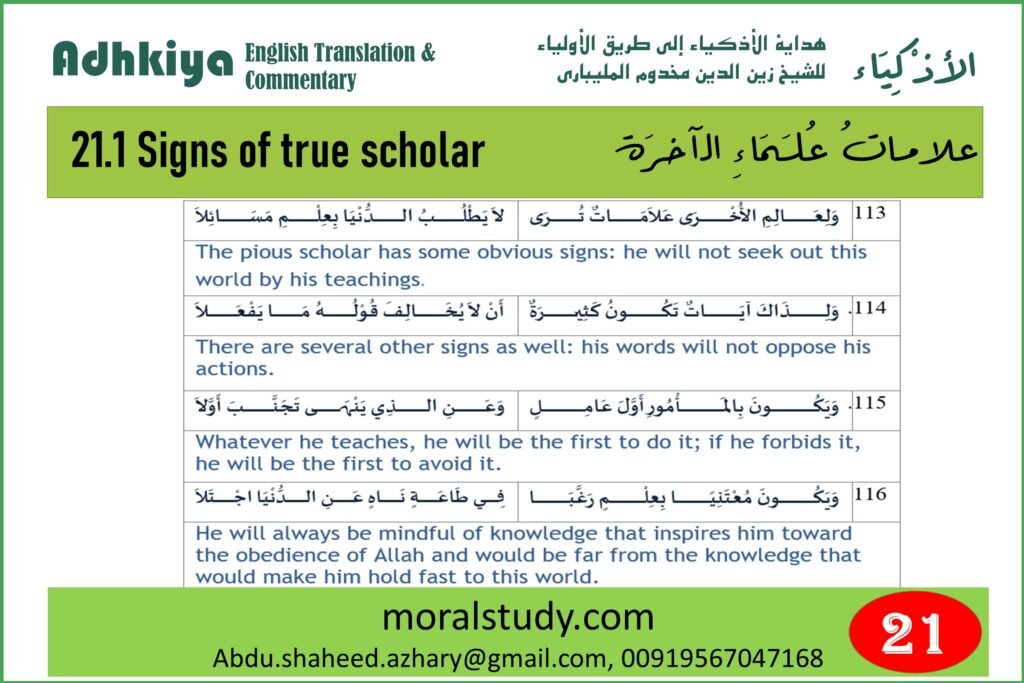Sufi Scholars (العارفُون)
Jihad Nafs is to purify the soul from its vices, i.e. from evil qualities such as anger, arrogance, miserliness, envy, lust etc. and to adorn it with qualities such as humility, asceticism, and piety.
A scholar who strives to learn about Allah’s attributes and gives attention to the inner beauty of the soul is called ‘Arif’. The author says that Arif is much better than a normal scholar who only focuses on extracting the rules and giving Fatwa without giving much attention to beautifying the soul.
Sufi Scholars (العارفُون) Read More »
